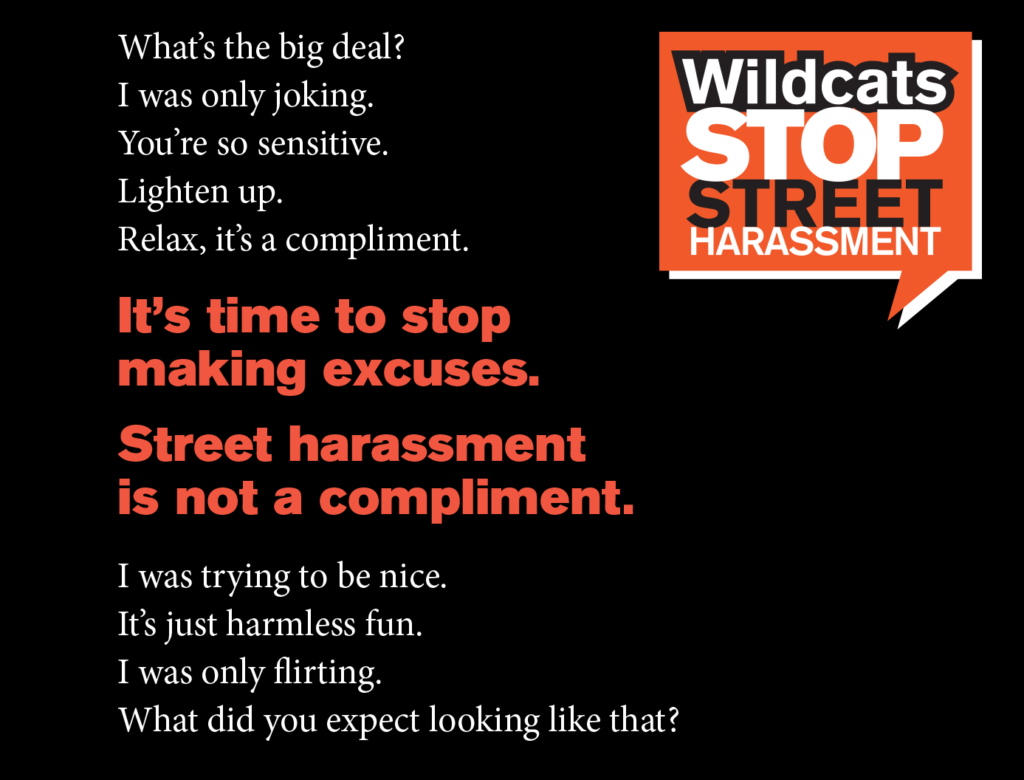Connie DiSanto, USA SSH Blog Correspondent
It was just over a year ago when I connected with Stop Street Harassment’s founder Holly Kearl over a controversial exhibit I created with a student here a UNH. I remember when I first ran the idea by a staff member who works at the exhibit location, his comment to me on the subject matter of street harassment, was “I thought that cat call stuff went out with the 80s?”
And during a residential hall program that our staff was offering to a group of students, the RA for the hall was informed that the program was going to be about street harassment and then replied, “Does that really happen here at UNH? I always thought it was just something in big cities.”
Those comments are more reasons why we still need to talk about street harassment, and specifically, we need to talk about it on college campuses. As part of last year’s exhibit, a survey was conducted by our student volunteers and it concluded that statistically speaking, what happens on this campus is very similar to what happens nationally with regard to street harassment.
 As we end the final semester for the year we realize there is much more work to be done. We know that even our students struggle with identifying what street harassment is and what it looks like on their own campus. We’ve heard from many students who recall sexually harassing comments made to them at a very early age yet when applying it to situations that happen within their community they begin to expect it on a college campus as part of the college culture.
As we end the final semester for the year we realize there is much more work to be done. We know that even our students struggle with identifying what street harassment is and what it looks like on their own campus. We’ve heard from many students who recall sexually harassing comments made to them at a very early age yet when applying it to situations that happen within their community they begin to expect it on a college campus as part of the college culture.
On April 11 we participated in a TweetChat about street harassment on college campuses led by our friends at the Women & Gender Studies Program at George Mason University and we talked about some key questions:
- What is street harassment? How does it look like? How does it feel like?
- How can we stop street harassment on campus?
- What are some barriers in identifying or reporting street harassment?
- What are some resources available to report street harassment?
You can look back to the conversation at #MasonAntiSH but I’d love to hear from you! You can email me with any answers to the above questions.

This year our exhibit for International Anti-Street Harassment week was in a new location at our campus library (since we were not allowed back to the more visible campus spot). One year later we are proud of the work we’ve been able to do and we look forward to continuing the conversation and bringing in new campus members as allies to help in the fight to end street harassment and all forms of sexual violence.
Connie is the Marketing Communications Specialist for the Sexual Harassment & Rape Prevention Program (SHARPP) at the University of New Hampshire. She can be reached at connie.disanto@unh.edu.
